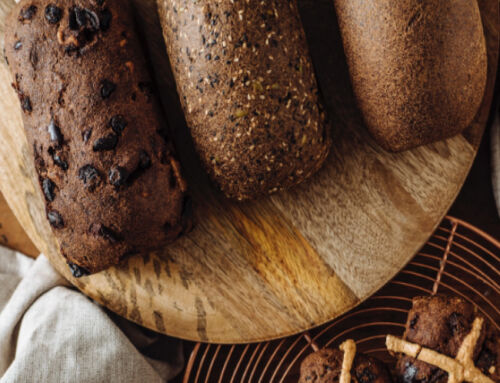Might be hard to believe, but most menopause symptoms come back to one main organ – your liver. The best way to manage these symptoms is to make sure your liver and digestive system are as healthy as possible.
That’s why the first thing I recommend to anyone going through menopause is to cut out processed foods that are high in sugar and trans fats, and replace these with good quality, natural produce. While eating nutritious foods will help ease menopause symptoms, some foods are better than others. So here are my top 5 foods to help ease menopause symptoms:
- Battle mood swings
Foods high in vitamin B and omega-3 fats are the best way to keep mood swings at bay. B vitamins can be found in lean meats and poultry, as well as whole grains and lentils. Omega-3 rich foods include oily fish like salmon and sardines, as well as flaxseeds. - Ward off hot flushes
First off, cut out foods that contain caffeine, alcohol and trans fats – all are shown to trigger or inflame hot flushes. As for what to eat, foods that contain phytoestrogen have been shown to reduce hot flushes significantly. Sources include seeds and nuts like sesame, sunflower and pistachios, soy products like organic tofu and tempe, as well as many fruits and vegetables. - Combat dryness
Vitamin E will help to combat dryness and replenish moisture in your skin. It can be found in high levels in foods like sunflower seeds, almonds, pine nuts and asparagus. - Improve libido
For many women, the decline in ‘sex’ hormones that comes with menopause can lead to a decline in libido. Foods which contain the amino acid L-arginine – such as oatmeal, nuts, garlic, soy and green vegetables – are thought to be helpful in improving sexual function. Potassium will also help regulate thyroid hormones and may enhance female libido, and is found in avocado and bananas. - Feel more energetic
Boost your energy levels by including foods high in iron and antioxidents like eggs, fish and green leafy vegetables. It is also important to eat a combination of good quality fats, proteins and starchy carbohydrates (such as whole grains) to provide your body with a steady source of energy over a long period of time.
Foods to avoid
- White flour and sugar
- Caffeine and alcohol – stimulants can trigger hot flushes
- Trans fats, including deep fried and junk foods
- Food additives and preservatives
If you want to learn more about the ways we can help you with menopausal symptoms, we’ll be holding a talk on 19th November 2013. To book tickets to this event, click here.
Yours in health,
Peter
Are you ready to take charge of your vitality and wellbeing through menopause?
Click here to download our free guide containing tips on managing your menopause symptoms naturally.




